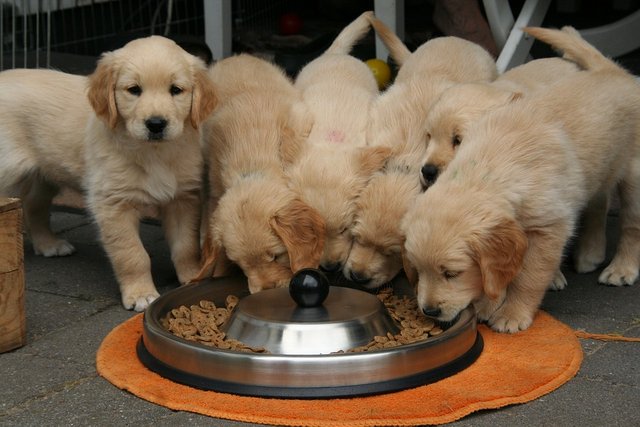The Memory Experiments
What do you think when you hear the word memory? As Steemit is largely inhabited by computer freaks, I assume several of you associate it with computers first, with humans second. In this case, I’m talking about human memory, the topic of the lectures I’m currently attending.
As an introduction, I want to present you the first experiments connected to this, because we didn’t always know what we think is common knowledge today.
Herman Ebbinghaus, born in 1850, was told that human memory couldn’t be studied through experiments. That there was just no way that the results would have any significance.
Ebbinghaus said fuck you (showing Wilhelm Wundt, the guy who said that, the mental middle finger) and did it anyway, being experimenter and test subject at once. He made a list with meaningless syllables (bok, lef, taz, and so on) and tried to remember them. 2,300 of them, to be exact. This was repeated several times, with up to 744 hours between attempts. Each time, the time he needed to remember the list perfectly was recorded. @suesa
And what did he find out?
The time needed to learn the syllables reduced dramatically between the first few attempts to memorize it, which then reduced in a curve. At one point, repeating the information didn’t result in a decline in the time needed.
And just like this, he had experimentally studied something about human memory!
Take that, Wundt!

How does learning work? How does our brain connect something we do with something that happens?
That was the question Edward Thorndike (1874 - 1949) asked. And what does a scientist do when they have a question?
They put a poor animal in a box and see what happens.

Watson’s puzzle box already existed and was created for monkeys. The monkey could reach outside the cage to open it and free itself. Thorndike adjusted this experiment for cats by putting a foot-pedal inside the cage that would open the door.
The cat would wander around in the cage, trying to get out, until it found the pedal. This process was repeated several times and the time was recorded. And the time the cat needed dropped, as expected.
Later, Thorndike repeated the experiment with fish, chickens, and dogs. I will leave the question how he made that work to your imagination.
Pavlov … does that name ring a bell?
It shouldn’t! Instead, it should evoke the sound of a metronome.

Pavlov didn’t plan on doing psychological research. He was actually performing a digestion study, for which he was using dogs. He was interested in the link between digestion and salivation and wanted to know if he could cause salivation, and thus digestive activity, by creating an external stimulus.
But that stimulus needed to be regular, controlled. A bell can’t be that perfect, a metronome can. So each time before he fed the dogs, he would turn on the metronome.
This part is really important. If you want to condition something (or someone), you need to first provide the stimulus the subject is supposed to react to (the metronome) and then the stimulus the subject already reacts to automatically (the food). Otherwise, there won’t be any effect.

Oh, and Pavlov didn’t just use a metronome. In addition to several other kinds of regular sounds, he also used … electric shocks.
Aren’t scientists just such sweethearts!
Anyway. After some time of turning on the metronome and then feeding the dogs, the dogs started producing saliva any time they heard the metronome, even if there was no food.
This works on humans too. Just saying.
Sources:
Lecture “Lernen und Gedächtnis - Zelluläre und molekulare Grundlagen“ by Prof. Uli Müller
Pictures taken from pixabay.com
Today’s Suesa’s favorite is: @raycoms
Did you ever want to learn something about programming? @raycoms can help you with that. Programming terms are explained term for term on his blog. He’s not posting a lot right now but for everyone who just started or plans to start programming, it’s recommendable to have a look!
Got a scientific topic which you want to see as a story? Leave me a comment!
You want to support scientists on Steemit? You are a scientist on Steemit? Join the #steemSTEM channel on steemit.chat and connect with us!
STEM is an acronym for Science, Technology, Engineering and Math


A lot of these early experiments are integral to the field of animal and human behavior as well as memory so they’re worth understanding for multiple reasons. Great work!
great post! hope i remember all this ;)
Ha, good one
That definitely works on human. As a kid I hear ice cream van and starts salivating. With time I could pick off the sound of the ice cream van from 7 miles off :)
I must say there was a great potential for a meme to be used here.
Anyways my bigger point of the reply is fish? I mean dogs, mice, cats... those make sense on how the experiment would work but fish?
I think I will look into how he got fish to cooperate...
Anyways very good post, quite enjoyed it!
Just wait, my post for today (up in a bit) contains.... Slugs.
I have 5 dogs and I use clicker training to teach them obedience. I guess it is the same concept, when we start, we click, command, treat and repeat. It doesn't take them long to connect the clicker sound to a reward. I should try it with my son... :)
I can guarantee you that it will work with your son too if done correctly. Humans are very easy to train, especially during childhood
I think our society became so complex so quickly that our evolution did not keep the pace, we are not designed to remember all the things we have to remember these days. Luckily for us we learned to manufacture "external memories" which are books, notes and blog posts on steemit that work as an extention to our hippocampus (region of the brain where some of our memories are stored). Also the question is not just quantitative, we may store all our thoughts and experiences somewhere in our brains, the problem is also to retrieve these memories. We have a relational access to our memories, which means that memories are categorized by attributes, so every time you evoke a memory it will make other related memories surface, our thoughts work in a kind of tag system. :)
I forgot to mention that our ability to forget is also very important :) If we were to remember everything we would not be able to think clearly!
Intriguing. Sometimes I think I have the worst memory or maybe the most weird. I can't seem to be ever good with faces and names so I mix up everything.
Think about this, seeing a familiar face but you can't recall either where you met or their name. You confuse stories, names and the circumstances under which you met. It is the most embarrassing thing ever especially if they remember you perfectly.
I might not like how forgetful I get but its good to know how some things work in there. Awesome science lesson :)
Wow! This is really nice, bursting my brains... When two things happen simultaneously everything we tend to see them as homogeneous and in a situation where only one is present we tend to visualize to other too. Just like the metronome and food.
Lovely post, the ending got me....
Most conditioning works on humans until they learn how to think a bit deeper about how to think and if they are the one controlling their own thoughts or if some external stimuli is controlling them. (meta-cognition/critical thinking skills)
Granted, some people never even think to think about how they think.... and therefore they are basically controlled by external stimuli for the majority of their lives. Thanks for this post because I think that science is fun to think about. hehe :)
Even if you are aware of a conditioning, it can be hard to go against it.
Very true.
I need someone to explain to me why I can remember the lyrics to hundreds of songs yet I forget that Monday is trash day!
According to my professor, the song lyrics are classified as important to your survival. The trash day is not :D
Lol, good to know.